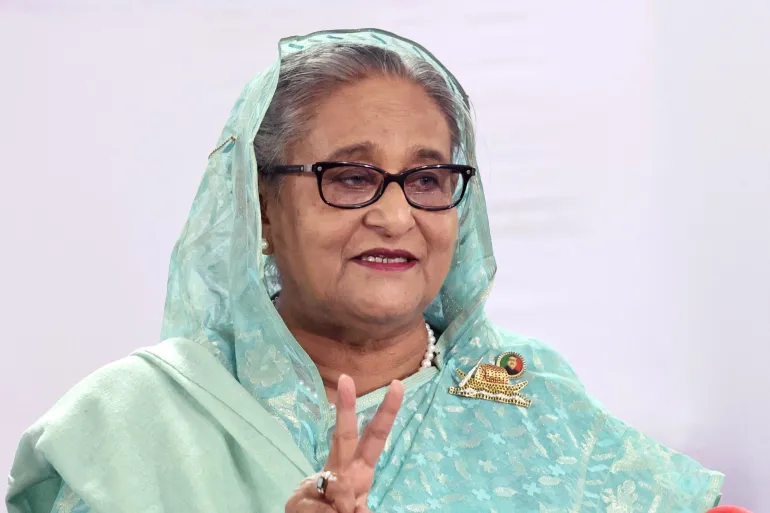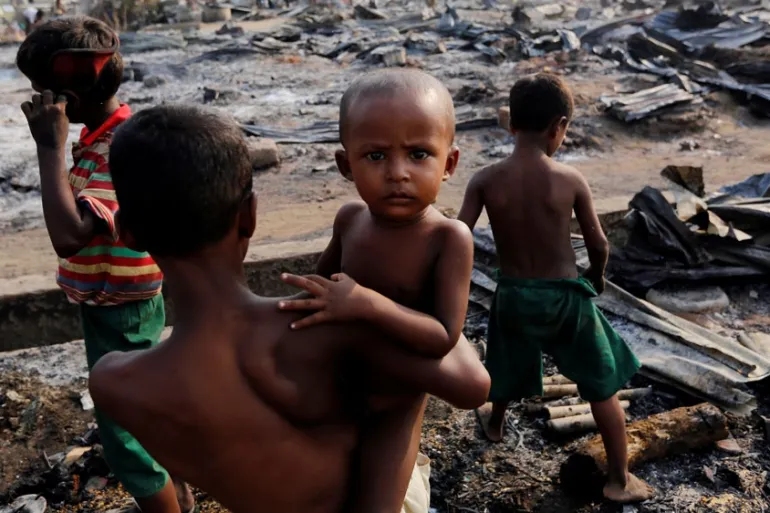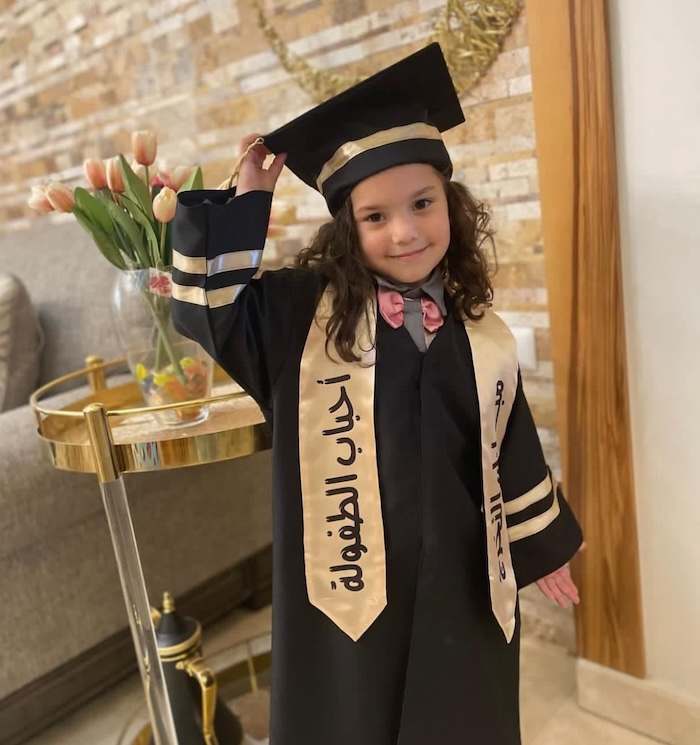As Bangladesh reflects on passing another Victory Day on December 16, the nation stands at a critical juncture, confronting some of the most challenging moments in its 52-year history. It is no exaggeration to claim that the country is grappling with almost insurmountable political, geostrategic, and human rights crises, compounded by recent elections held just last month that were marred by allegations of being neither free nor fair.
The people of what was once East Pakistan, now Bangladesh, endured significant persecution and discrimination from the rulers in West Pakistan, both politically and economically. The oppressive policies, language disparities, and neglect of East Pakistani needs led to widespread discontent and a push for autonomy. The refusal to acknowledge the Awami League’s electoral victory under Sheikh Mujibur Rahman in 1970, sparked an intense yearning for independence. The war in 1971 saw countless civilians killed, injured, sexually assaulted, and displaced in a spate of brutal violence by the Pakistan armed forces. Bangladesh emerged from these events, founded on the core principles of democracy, freedom of expression, and self-determination – principles that resonate with the tenets of justice and equality. However, under the Hasina regime, the nation’s trajectory seems to diverge sharply from the aspirations championed by her father.
Internal Election Issues and External Impact
The historical context of Bangladesh has firmly rooted the principle of ‘consent of the governed’ as a central value for its people. Yet, a stark discrepancy emerges when examining the electoral processes in Bangladesh since Sheikh Hasina’s ascendancy. Every election conducted under the Awami League regime, such as those in 2014, 2018, and 2024, has been widely perceived as biased, manipulated, and flawed. Despite being founded on democratic ideals, these consistent electoral irregularities highlight a troubling reality: politicians maintain power without a genuine mandate from a significant portion of the populace.
As Bangladesh has now concluded its 2024 election and the United States intensified pressure on the government for a free and fair electoral process, the role of India in Bangladesh’s politics has resurfaced in discussions. Following the U.S.’s announcement of a new visa policy in May 2023 to support democracy in Bangladesh, some Indian commentators have argued that it is ‘not the right time’ for such support and there is necessity for Delhi to ensure Hasina remains in power.
Just prior to the election, GM Quader and Mujibul Haque Chunnu, the chairman and general secretary of the Jatiya Party respectively, met with Rajesh Kumar Agnihotri, the Minister at the High Commission of India in Bangladesh. Intriguingly, Agnihotri and seven other Indian embassy staff were accused of espionage and terrorism by Pakistan’s Ministry of Foreign Affairs.
For almost the whole year, the Jatiya Party (JP), the primary opposition in parliament against the ruling Awami League, was ambivalent about participating in the election. However, on November 22, Chunnu unexpectedly announced on Quader’s behalf that the Jatiya Party would contest in nearly all 300 constituencies. Acting as controlled opposition, this resulted in JP winning 11 seats that were not contested by the Awami League, and 62 independent candidates winning seats, with 58 of them being ruling party leaders.
This sudden shift had raised questions, especially considering Quader’s previous public statements about the likelihood of Western sanctions if the election proceeds under the current conditions. The only conceivable explanation seems to be intense coercion by external forces, possibly RAW (India’s foreign intelligence agency) agents, to lend a façade of legitimacy to this lopsided election by ensuring the Jatiya Party’s enthusiastic participation.
These recent electoral maneuvers are symptomatic of a broader pattern of policies that underscore Bangladesh’s subservience to Indian government interests, often at the expense of its own people.
Indo-Bangladesh Relations: A Tilted Scale

[Prime Minister’s office/Handout via Reuters]
Concerns among Bangladeshi analysts are growing over what appears to be an increasingly
lopsided relationship favoring India under the Hasina regime. Bangladesh has extended significant support to India, including efforts to combat
insurgency in its Northeastern region, providing
transit access, granting India
permanent use of key Bay of Bengal ports, and entering into a
costly energy
deal. Additionally, Bangladesh has agreed to a
surveillance system installation in the Bay of Bengal and a water-sharing deal giving India control over the
Kushiyara River, alongside deepening
defense cooperation.
In stark contrast, Bangladesh’s interests have often been sidelined. The long-standing request for a Teesta River water-sharing agreement remains unaddressed; the India-Bangladesh border witnesses the Indian Border Security Force killing innocent Bangladeshis; the trade imbalance increasingly tilts in India’s favor; and Bangladesh has not garnered Indian support in handling the Rohingya refugee crisis.
In 2018, Sheikh Hasina, responding to a query about reciprocity from India, remarked that India would forever remember Bangladesh’s contributions. This comment reflects the ongoing imbalance in bilateral relations, sustained largely by India’s unwavering support for the Hasina government. Notably, in the wake of the controversial 2014 elections, India’s Foreign Secretary Sujatha Singh reportedly pressured the Jatiya Party, led by General H.M. Ershad, to participate in the election boycotted by opposition parties. In 2018, despite clear signs of the Awami League’s erosion of democratic norms and institutions, India’s support has remained steadfast.
These actions have fueled perceptions in Bangladesh that India’s backing is crucial for the Hasina government’s survival, raising questions about the true independence of Bangladesh’s internal affairs and the origin of skewed foreign policy.
Exploring Bangladesh’s Ummatic Identity
The 1971 Liberation War fostered an alliance between Bangladesh and India, with expectations that India’s support would extend its influence over Bangladesh’s policies and counteract Pakistan and Islam’s influence in the subcontinent.
December 16, 1971, marked Bangladesh’s emergence as a sovereign nation, followed by Sheikh Mujibur Rahman’s initiation of trials against local collaborators and accused Pakistanis. Although Rahman established seventy-three special tribunals, a general amnesty led to the release of most prisoners and convicted individuals.
The Awami League’s 2008 electoral victory reactivated the dormant ICT Act, leading to the establishment of two tribunals in 2010 and 2012. Notably, leaders of Bangladesh Jamaat-e-Islami, an entity representing moderate Islamism and a political rival of the Awami League, were mostly charged, echoing Geoffrey Robertson’s critique of ‘victor’s justice’ and selective amnesty applications.
These trials, however, have been marred by political motivations, procedural irregularities, and lack of due process. The verdicts often relied on circumstantial evidence and hearsay, undermining their credibility. The infamous Skype scandal, involving inappropriate communication between a judge and a prosecution witness, further tainted the trials. Changes in the composition of the bench during critical trials, including those of Nizami and Azam, raised questions about the fairness of the verdicts, as judges who delivered final judgments were not privy to all the evidence.
In an ironic turn, the trials intended to serve as a beacon of justice for the atrocities of the 1971 war have, through their politicization, unfairness, and corruption, instead revealed a profound desecration of the very ideals once fought for by Sheikh Hasina and her regime. This effectively amounts to standing on the graves of innocent Bengali civilians, a betrayal of the memories of those who perished due to injustice and oppression.
The repression of Jamaat and BNP by the autocratic Hasina regime poses a serious threat to the stability and security of Bangladesh as it undermines the prospects for peace and fuels extremism. The West’s Islamophobia, which brands “brown” communities as “terrorists,” and Bangladesh’s tendency to associate “extremism” with anything Islamic in the public sphere, demonstrate the impact of colonialism and Indian influence on the political landscape.
In fact, Muslim-majority Bangladesh has experienced an increase in terrorist attacks on religious minorities, secularist and atheist writers, and bloggers because of exacerbating the problem by fueling extremism rather than effectively addressing concerns of legitimate political opponents. Following 7/16, Hasina rightly criticized these acts because of them maligning the name of Islam, and her allies and other politicians looped in BNP to say they were behind the attacks to destabilize Hasina’s rule.
Interestingly, when Bangladesh expresses concerns about the rise of Islamist or Shariah influence within the Republic, their apprehensions evidently extend beyond groups like Ansarullah Bangla Team, Jamaat-ul-Mujahideen, or ISIS. Rather, they are often more focused on moderate Islamist and reformist movements, such as the Muslim Brotherhood and Jamaat-e-Islami, and their allies operating in Bangladesh. These movements seek to employ political participation and activism to advance their objectives, which center around upholding religious principles, stewardship of the Earth, and the establishment of justice and prosperity—an agenda that challenges the stability of the South Asian political order, particularly when backed by public opinion.
Historically, India has demonstrated a tendency to suppress these movements through intervention in South Asia. Notable instances include Indian suppression of Kashmiri resistance, Indian involvement in influencing the 2013 ICT, and the development of state-sponsored Hindutva extremism across the subcontinent.
Conversely, terrorist attacks perpetrated by groups like Jamaat-ul-Mujahideen and ISIS have often provided Bangladesh with the pretext to redefine free speech laws, impose censorship, suppress certain groups, mischaracterize others, and expand terrorist watchlists. Consequently, within the framework of liberal democratic Bangladesh secular societies, the concept of freedom of speech has become an instrument measured by its capacity to maintain a superficial sense of social order of the Hasina regime, primarily benefiting Awami League elites and their associates.
Since these events, thousands of mosques have operated under the direct authority of the Islamic Foundation, with government-funded imams and employees overseeing their operations. Even mosques not overseen by the Islamic Foundation are subject to oversight from governing committees dominated by local ruling party politicians and administration.
Imams across the country have reported continued government influence in their appointment and removal, as well as guidance on the content of their sermons. Government-issued written instructions often highlight certain Quran verses and hadith with the goal of ensuring sermons align with government policy and avoid contradicting it.
Furthermore, Bangladesh has set a concerning precedent by banning moderate preachers based on accusations of hate speech. One notable example is the banning of Peace TV, a channel associated with renowned da’ee Zakir Naik, following an unfounded link between his speeches and the events of 7/16.
In 2020, the Bangladesh government took further steps by banning Mizanur Rahman Azhari, one of the country’s most popular speakers, from preaching at congregations due to his perceived anti-government sentiment. These actions are purportedly justified under the guise of counter-terrorism efforts, but they ultimately serve to suppress powerful orators who advocate for justice and speak truths that contradict the government’s policies and agenda.
The Rohingya Crisis and Hasina’s Failures

[Reuters/Soe Zeya Tun]
The Rohingya crisis, perpetuated by the longstanding persecution in Myanmar, has reached catastrophic proportions under Prime Minister Hasina’s watch in Bangladesh. For generations, Myanmar’s Buddhist majority and military have ruthlessly
targeted the Rohingya minority, initiating what can only be described as a genocide to achieve a “Muslim-free” state. The systematic rape and massacre of Muslim women and children in Arakan and Rakhine states exemplify the extreme brutality endured by the Rohingya community.
Despite the harrowing conditions faced by the Rohingya, the international response has been grossly inadequate. Organizations tasked with protecting human rights have failed to take effective action, allowing the crisis to escalate to unprecedented levels. The mass exodus of Rohingya to Bangladesh has resulted in the establishment of Kutupalong refugee camp, now the largest of its kind in the world, near the Myanmar border.
Critically, Prime Minister Hasina’s administration must be held accountable for its role in exacerbating the Rohingya plight. While attempting to portray itself as a savior for Rohingya refugees since other South Asian countries did not assist, the government’s actions belie a different reality. Hasina’s alignment with India and its anti-Muslim agenda directly undermines any genuine efforts to address the crisis.
India’s reluctance to provide refuge to Rohingya from Burma, despite their shared border, is compounded by their internal policies that actively suppress Muslims, exemplified by the Citizenship Amendment Law (CAB). The primary objective of the CAB is to delegitimize Muslim citizenship, thus exacerbating the plight of persecuted minorities like the Rohingya. Myanmar’s exclusion from the list of nations specified in the bill, despite its geographical proximity to India, highlights the deliberate omission aimed at avoiding granting amnesty to Rohingyas. This decision contradicts the bill’s purported emphasis on providing refuge to religious minorities in India’s neighborhood, underscoring the discriminatory nature of India’s approach to the Rohingya crisis.
Under Hasina’s leadership, Bangladesh has failed to provide meaningful solutions to the Rohingya crisis. Despite hosting nearly a million refugees, the government has taken a passive stance, offering no initiatives to facilitate legal entry, prevent illegal immigration, or ensure the well-being of Rohingya within its borders.
Bangladesh has historically served as a temporary safe haven for millions of Rohingya refugees, with waves of migration occurring in the late 1970s and after 1991. However, despite this influx, the government has failed to implement significant initiatives to address the crisis effectively. As of September 2023, nearly a million Rohingya refugees have been registered and documented jointly by the Government of Bangladesh and UNHCR. Yet, under the Awami League’s leadership, Bangladesh has taken a passive role in defusing tensions along the Myanmar frontier. There have been no substantial efforts to facilitate the legal entrance of Rohingya, prevent illegal immigration, provide adequate assistance while they reside in Bangladesh, or create safer conditions for their potential return to Myanmar. Regrettably, Prime Minister Hasina has shown no inclination to engage in developing or contributing to either temporary or permanent solutions to the Rohingya crisis, leaving the plight of these refugees in a state of prolonged uncertainty and neglect.
Prime Minister Hasina’s track record regarding assistance for Rohingya refugees entering Bangladesh is marred by a lack of genuine interest in their plight. Instead of prioritizing humanitarian concerns, Hasina appears more preoccupied with safeguarding the country’s international image. This indifference has translated into minimal efforts to provide meaningful support for Rohingya seeking refuge, reflecting a disturbing lack of empathy and responsibility towards a vulnerable population in dire need of assistance.
Furthermore, the Hasina government’s failure to effectively address illegal immigration and ensure national security along the Myanmar border has had devastating consequences. Despite the recurring exchange of bullets, mortar shells, and rocket launcher explosions between Myanmar’s armed forces and insurgent groups, resulting in the loss of Bangladeshi lives, Hasina’s administration has remained conspicuously inactive. The absence of any substantive response from the government underscores a glaring negligence towards protecting its citizens and securing the nation’s borders, exposing a critical lapse in governance and leadership.
The Rohingya refugees in Bangladesh have faced inadequate care under the Awami League administration, particularly in the realm of education and economic empowerment. Although schooling is provided with the permission of Prime Minister Hasina, it is taught in Burmese in anticipation of their eventual return. However, this approach is flawed as Burmese is not widely understood among the Rohingya population, who predominantly speak a non-written language. Additionally, finding teachers proficient in Burmese poses a challenge. It would be more beneficial for Rohingya students to receive education in Bengali or English, languages that offer broader communication opportunities and access to global resources. Furthermore, Hasina’s administration has been reluctant to support initiatives for Rohingya to generate their own income or engage in livelihood projects. This dependency on humanitarian aid is unsustainable, especially considering the dwindling funding for such assistance. Moreover, Bangladesh’s decision to block high-speed internet access for Rohingya refugees in 2021 further isolates them from the outside world, hindering their ability to communicate and share information about their circumstances.
In terms of efforts towards repatriation, Bangladesh’s role in diplomatic engagement has been underscored by the international community, urging Prime Minister Hasina’s administration to engage in discussions with Myanmar and international partners. However, it is apparent that Bangladesh’s actions amount to mere lip service to the Rohingya cause, as Hasina’s government maintains close ties with India, which holds an agenda against Muslim minorities across South Asia that they are unwilling to jeopardize. Additionally, Hasina’s government maintains a strict stance regarding armed conflict in Myanmar, citing adherence to international law, particularly Article 3 of the Protocol Additional to the Geneva Conventions of 1949, which prohibits direct or indirect intervention in non-international armed conflicts in other states. Despite this, Hasina proposed the establishment of safe zones for Rohingyas in Myanmar under United Nations supervision. However, this proposal has been met with skepticism and criticism, with concerns raised about its potential harm and the historical failures of UN-supervised safe zones in regions such as Bosnia, Rwanda, Sri Lanka, and Iraq.
The Rohingya crisis, a glaring testament to the collective failure of both the Awami League and the international community, has devolved into a human rights catastrophe with no effective resolution in sight. Prime Minister Hasina’s administration, by prioritizing political alliances and national image over humanitarian obligations, has perpetuated the plight of nearly a million refugees, leaving them mired in a state of vulnerability and neglect, and underscoring the urgent need for a concerted, global response to address and rectify the ongoing genocide and displacement.
A Call for True Sovereignty

PC: Indiapost. com
As Bangladesh approaches yet another Victory Day, we find ourselves grappling with a paradox. The very ideals that drove our struggle for independence—democratic governance and the right to self-determination—are being suppressed under Sheikh Hasina’s regime. The degeneration of free and fair elections stands as a stark contradiction to the principles that fueled the liberation movement in 1971. The era since Hasina’s ascendancy has been marked by an alarming trend of forced disappearances, targeting not only political opponents but also ordinary citizens who dared to voice dissent. This chilling atmosphere has effectively stifled freedom of speech, a cornerstone of any democratic society.
With the upcoming election, little change seems imminent. However, it is imperative for Bangladeshis to assert our discontent with the current state of affairs. The undue influence of India in Bangladesh’s political landscape has transformed the country into a puppet state, undermining our sovereignty. The power to choose leaders, a fundamental right of the people, appears compromised by external interventions.
The true spirit of Victory Day will only resonate when Bangladesh acts in its own best interest, free from external domination. The day when Bangladeshis can freely elect their leaders without foreign interference will mark the actualization of the dreams and sacrifices of 1971. Moving forward, it is crucial for us to reclaim their agency and ensure our voices are heard and respected. Only then can our nation experience a true victory—a victory for democracy, freedom, and independence.
Related:
– From Cairo To Dhaka: Exploring The Impact Of The Arab Spring On Bangladesh
– Bangladesh in Turmoil | War Crimes Protests Escalate
The post Over Five Decades On: Bangladesh’s Crisis Of Islam, Politics, And Justice appeared first on MuslimMatters.org.

 Hind Rajab, the six-year-old girl murdered by the Israelis who also murdered the two paramedics sent to her rescue. (Source:
Hind Rajab, the six-year-old girl murdered by the Israelis who also murdered the two paramedics sent to her rescue. (Source: 

 has written for two people to be together, they will find each other in the end. Look at the years of a haram relationship they were saved from because the brother was simply mature enough to say, “This isn’t a responsibility I can manage for the next few years.” Masha’Allah. I love their whole story.
has written for two people to be together, they will find each other in the end. Look at the years of a haram relationship they were saved from because the brother was simply mature enough to say, “This isn’t a responsibility I can manage for the next few years.” Masha’Allah. I love their whole story.

